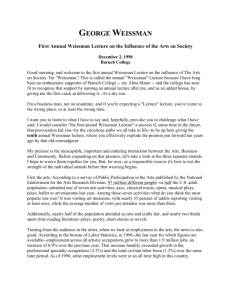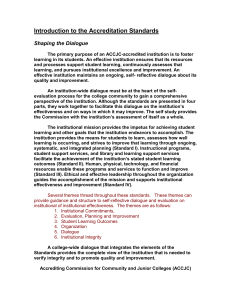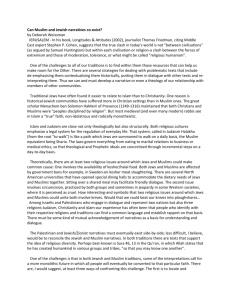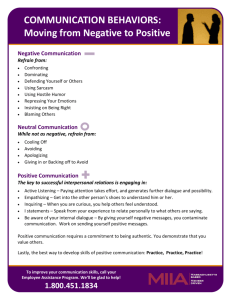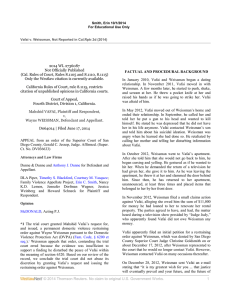Swinburne's Multi Faith Facility celebrates 1st anniversary
advertisement
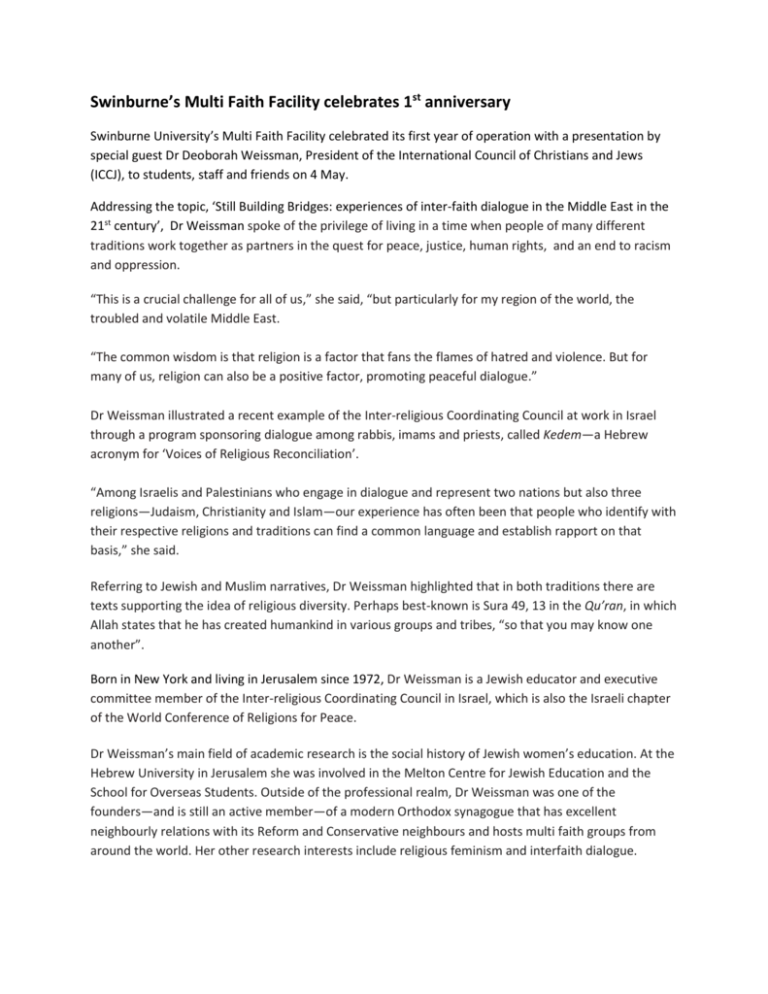
Swinburne’s Multi Faith Facility celebrates 1st anniversary Swinburne University’s Multi Faith Facility celebrated its first year of operation with a presentation by special guest Dr Deoborah Weissman, President of the International Council of Christians and Jews (ICCJ), to students, staff and friends on 4 May. Addressing the topic, ‘Still Building Bridges: experiences of inter-faith dialogue in the Middle East in the 21st century’, Dr Weissman spoke of the privilege of living in a time when people of many different traditions work together as partners in the quest for peace, justice, human rights, and an end to racism and oppression. “This is a crucial challenge for all of us,” she said, “but particularly for my region of the world, the troubled and volatile Middle East. “The common wisdom is that religion is a factor that fans the flames of hatred and violence. But for many of us, religion can also be a positive factor, promoting peaceful dialogue.” Dr Weissman illustrated a recent example of the Inter-religious Coordinating Council at work in Israel through a program sponsoring dialogue among rabbis, imams and priests, called Kedem—a Hebrew acronym for ‘Voices of Religious Reconciliation’. “Among Israelis and Palestinians who engage in dialogue and represent two nations but also three religions—Judaism, Christianity and Islam—our experience has often been that people who identify with their respective religions and traditions can find a common language and establish rapport on that basis,” she said. Referring to Jewish and Muslim narratives, Dr Weissman highlighted that in both traditions there are texts supporting the idea of religious diversity. Perhaps best-known is Sura 49, 13 in the Qu’ran, in which Allah states that he has created humankind in various groups and tribes, “so that you may know one another”. Born in New York and living in Jerusalem since 1972, Dr Weissman is a Jewish educator and executive committee member of the Inter-religious Coordinating Council in Israel, which is also the Israeli chapter of the World Conference of Religions for Peace. Dr Weissman’s main field of academic research is the social history of Jewish women’s education. At the Hebrew University in Jerusalem she was involved in the Melton Centre for Jewish Education and the School for Overseas Students. Outside of the professional realm, Dr Weissman was one of the founders—and is still an active member—of a modern Orthodox synagogue that has excellent neighbourly relations with its Reform and Conservative neighbours and hosts multi faith groups from around the world. Her other research interests include religious feminism and interfaith dialogue. Swinburne’s Multi Faith Facility is located on the 3rd floor of The George (34 Wakefield Street). When it opened a year ago, it posed the question: “Can we encourage respectful dialogue between people of different faiths and belief frameworks, while maintaining the integrity of one’s own tradition and respecting the distinctives of other traditions? Senior Chaplain Newton Daddow says the facility is being well utilized. “The dialogue between folk of different backgrounds is being quietly and constructively promoted,” he said. The anniversary celebrations also included the introduction of three newly appointed chaplains to the Swinburne chaplaincy team: Rabbi Moishe Weiss, Imam Mohamed Abdul Rashid and Rev Jessica Chang (Anglican). A tour and introduction to the Swinburne Multi Faith Facility is planned for 3pm Friday 1 June, with a light afternoon tea provided. If you are interested, please contact Senior Chaplain Newton Daddow, email: ndaddow@swin.edu.au To read more on an important focus for the International Council of Christians and Jews at this time, see the Berlin Document, ‘A Time for Recommitment: Building the New Relationship between Jews and Christians’ - http://www.iccj.org/fileadmin/ICCJ/pdf-Dateien/A_Time_for_Recommitment_engl.pdf


